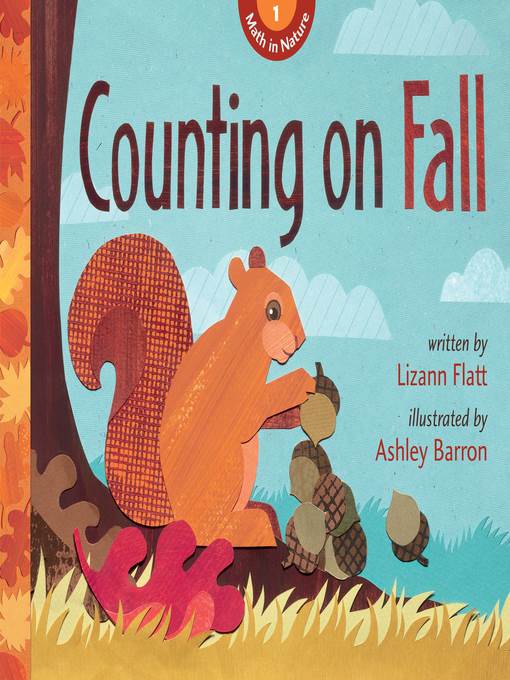
Counting on Fall
Math in Nature
فرمت کتاب
ebook
تاریخ انتشار
2014
Lexile Score
560
Reading Level
2-3
نویسنده
Ashley Barronناشر
Owlkids Books Inc.شابک
9781926973487
کتاب های مرتبط
- اطلاعات
- نقد و بررسی
- دیدگاه کاربران
نقد و بررسی

July 9, 2012
Launching the four-book, seasonally themed Math in
Nature series, Flatt asks the question “What if nature knew numbers like you?” What follows is a series of imaginative verses that suggest ways that animals might behave differently if they understood numbers and knew how to count. “If the bears were aware,/ would they think that it’s fair,/ if one were to gobble/ more than his or her share?” writes Flatt, while two blueberry-colored bruins chow down on branches of berries. Barron’s cut-paper collages have the crispness of an autumn afternoon, and Flatt smoothly touches on estimation, counting by fives and tens, counting backwards, and other mathematical concepts while maintaining a gentle, whimsical tone. A “Nature Notes” section gives additional information on the flora and fauna introduced. Ages 5–7.

August 1, 2012
First in the Math in Nature series, this prompts readers to imagine animals and plants using numbers to count and arrange themselves. "Would pronghorns pair up, / line up in a parade, / and prance across the prairie? // With toes like those, / do you suppose / raccoons can count on trouble?" The text attempts some rhythm and rhyme, but it is inconsistent and awkwardly forces the story to conform to the words. Each verse is followed by a separate text box that allows readers to practice a mathematical concept: Counting, ordinal numbers, groups of 10, skip counting, counting down from 10, and halves are among those addressed. Backmatter includes a brief paragraph of information about the featured flora and fauna, but it lacks an answer key. Barron's artwork is lovely, each spread filled with natural colors, textures and 3-D scenery, but not all are particularly fall-ish. It can also be difficult to distinguish the items to be counted from the backgrounds and to put them into the correct groupings (don't count across the gutter on the bat page, even though there's no break in the line of bats!). Finally, Flatt's conclusion--that nature does not "know" numbers--is just not scientifically accurate. Animals and plants may not count and arrange themselves by number, but that does not mean there is no math in nature. Gorgeous cut-paper collage illustrations cannot outweigh the absence of a story. (Math picture book. 4-7)
COPYRIGHT(2012) Kirkus Reviews, ALL RIGHTS RESERVED.

November 1, 2012
PreS-Gr 2-While this book offers opportunities to practice math skills and to learn seasonal plant and animal facts, the merging of these two topics seems forced. Each spread poses a question that requires counting, adding, subtracting, or estimating. Attractive collage art represents vibrant autumn leaves, fruits and seeds, honking geese, and hungry bats as well as some less-familiar animals like grackles, pronghorns, and pikas. The fact that nature is random, however, makes it peculiar to think of butterflies lining up in rows of 10 or antelopes neatly marching in pairs. Flatt even makes this observation herself when she says, "So... nature knowing numbers?/No not really true./The only creatures to need numbers?/Actually, just you!" The "Nature Notes" section is a valuable feature, but the brief, encyclopedialike entries could easily be found elsewhere. This is a visually appealing book, but the unremarkable content makes it a supplementary purchase for most libraries.-Gloria Koster, West School, New Canaan, CT
Copyright 2012 School Library Journal, LLC Used with permission.

























دیدگاه کاربران